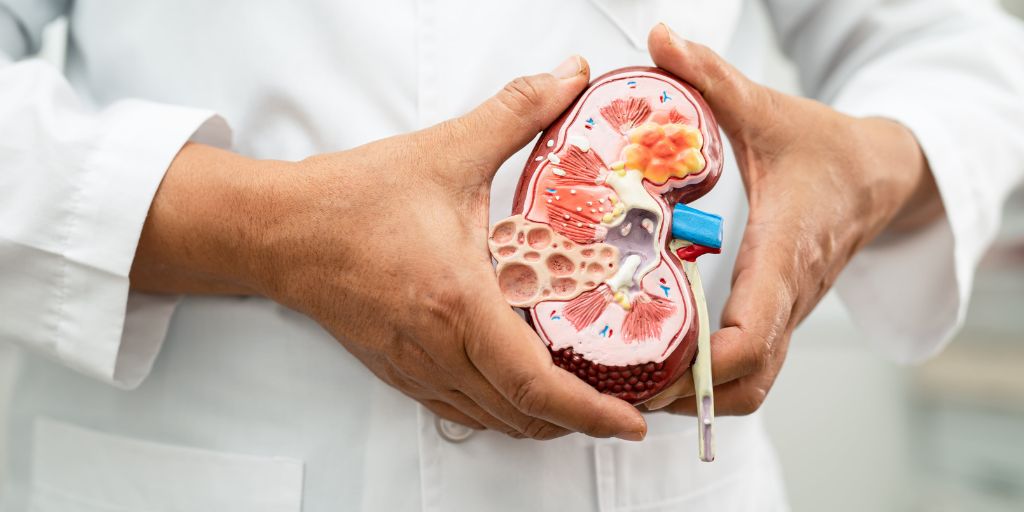
One person in 10 in the UK is living with chronic kidney disease, a figure which rises to one in five among people aged over 80. People in Bedfordshire, Luton and Milton Keynes have been urged to use World Kidney Day (14 March) to find out more about a condition which can cause serious illness, and to come forward for advice and testing if they have risk factors or display symptoms.
Chronic kidney disease (CKD) means that your kidneys do not work as well as they should, meaning that they can’t remove waste products from your body. Damage to the kidneys’ filter system can also allow blood and protein to leak into the urine. This can be identified with a urine test.
There are 40-45,000 premature deaths every year due to chronic kidney disease in the UK, although the vast majority of patients with CKD do not have any symptoms and do not need specialist care; they can manage their illness themselves. Even when your kidneys are damaged, they can still work well enough to prevent you having any symptoms. You can even be born with just one kidney and remain healthy.
Symptoms may only be noticeable with more advanced kidney disease, and include:
- Generally feeling ill, lack of interest in everyday activities and loss of concentration;
- Tiredness, low energy levels;
- Muscle weakness;
- Finding it difficult to breathe (due to a build-up of fluid in the lungs);
- Difficulty sleeping at night (insomnia);
- Passing urine more often at night;
- Feeling sick;
- Headaches;
- Itching;
- Aching bones;
- Muscle cramps.
CKD is most often caused by other conditions which put a strain on your kidneys. The biggest risk factors are diabetes and high blood pressure, although heart disease, kidney infections and autoimmune conditions can also increase your risk.
Dr Sanhita Chakrabarti, deputy chief medical director at Bedfordshire, Luton and Milton Keynes Integrated Care Board, said:
“Anyone can get CKD. It can affect children and adults of any age, although older people are more likely to have kidney disease. Some people are born with it. It can run in families and is more common in people from Black and South Asian backgrounds.
“If you do have symptoms, they may be quite similar to other illnesses, so it’s important to come forward for medical advice and tests which can rule out other causes. Most people are diagnosed by a blood and urine test. You may have these tests as part of a routine check-up or because you are at risk of developing CKD but, if you are concerned, make an appointment at your general practice.
“Although you may not have any symptoms from CKD, kidney damage can still affect your health. Every day around 20 people in the UK develop kidney failure which requires dialysis or a transplant, but most people with kidney disease can manage their illness without needing invasive care.
“I’d particularly urge anyone who already has a condition which is also a risk factor for kidney disease to think carefully about how they manage their illness, so that we can help them to stay healthier for longer.”











